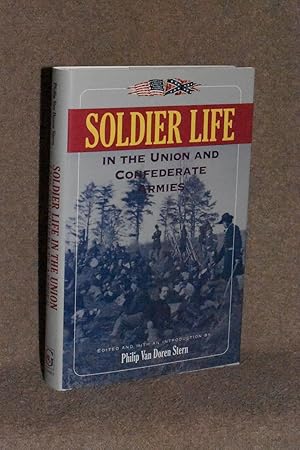

By so doing, it illuminates links between gender and emotion and reveals how military service during the Civil War altered men’s interactions with and perceptions of one another, forming bonds that endured into the postwar era. This essay seeks to explore the nature of personal relationships among Confederates, as witnessed especially in the intimate setting of military encampments. Although time and political agenda distorted both McCarthy’s memory and his portrait of Confederate service, his focus on soldiers’ fraternity aligns with the broader tenor of many veterans’ private wartime and postwar writings, reflecting men’s continued engagement with the Civil War’s transformative power. His description of fraternity, however, deserves further scrutiny, for it undermines a prevailing notion of white southern men’s fierce independence and also reflects a common, albeit neglected, thread woven throughout Confederate soldiers’ wartime correspondence and diaries. His portrait of camp life offers scant mention of the monotony and dangers soldiers experienced, and his book often reads like a Lost Cause editorial deifying Confederate soldiers and vilifying African Americans. At first blush, it is tempting to dismiss such claims as postwar propaganda or reified memories. It has an accuracy and richness that could only come from a man who was actually there and when you finish reading, you feel like you were there with him.Years after the conclusion of the American Civil War, former Confederate artillerist Carlton McCarthy fondly recalled “the cheerful, happy scenes of the camp-fire.” The military encampment, he continued, served as the soldier’s “home, his place of rest, where he met with good companionship.” These vignettes of soldier life formed the substance of McCarthy’s 1882 work, Detailed Minutiae of Soldier Life in the Army of Northern Virginia, 1861–1865. He captures their day-to-day life, as well as their triumphs and tragedies, with both heart wrench-ing honesty and with the healthy dose of humor that enabled them all to bear the long years of hardship and deprivation. As a young man, McCarthy fought with local units before finally enlisting with the 2nd Company, Richmond Howitzer's Artillery Unit in 1864. With rich and vivid details of the military camps, marches, skirmishes and battles, his personal stories and anecdotes bring to life what it was like to be a soldier in the Army of Northern Virginia during that long brutal war.



From the beginning of the American Civil War in 1861, to the days following the surrender at Appomattox in 1865, Carlton McCarthy draws the reader into the world of the common Confederate soldier. The Civil War comes to life through the eyes of someone who actually lived it.


 0 kommentar(er)
0 kommentar(er)
